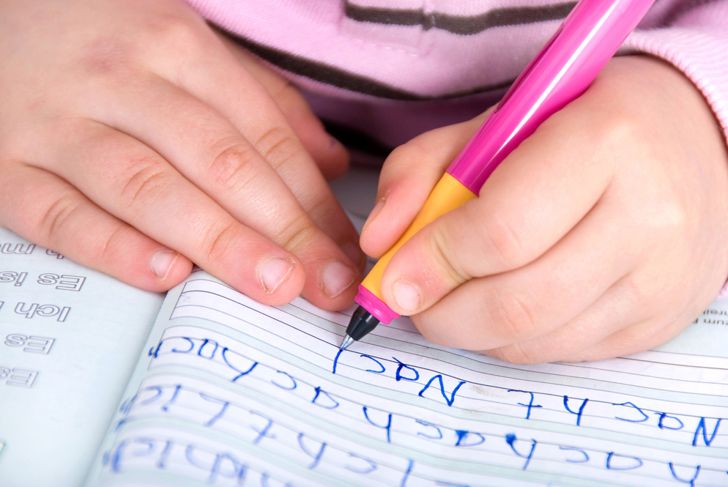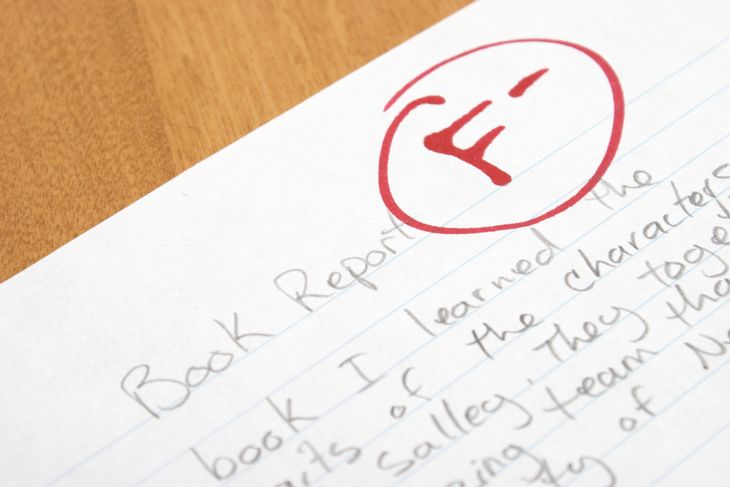Dyslexia is a condition that is often misunderstood. People who suffer from dyslexia are not less intelligent that their peers, but they may struggle to achieve the same success or reach the same milestones due to their disorder. Dyslexia occurs when the brain struggles to learn sounds and process written words on the page. Research has debunked the theory that dyslexia cause patients to read reversed letters or write backwards, and instead has shown that it is a reading disorder that affects many aspects of learning. Dyslexia can be accommodated for in the classroom if it is identified correctly, so it is important to know the signs and symptoms.
Pronunciation Difficulty
Parents or teachers of students with dyslexia may notice that they frequently mispronounce words, even if they are words the child has heard before. They often frequently use incorrect or reversed sounds, such as reversing the first syllable of a two-word phrase. As a result, students may not be able to fill in the blanks of rhymes or poems, because they are unable to correctly pronounce the rhyming word in their head. This doesn’t mean that they don’t know or understand the word, however. Students with dyslexia may need to be prodded to correctly pronounce a word, even if they use it regularly.
Slow Reading Ability
One of the first signs of dyslexia often occurs in early elementary school, when reading is a focus of most schools. Students with dyslexia may not be able to read as quickly or as comprehensively as their peers. This occurs because the brain struggles to process the words and assign context to them at the same time, requiring the student to exert more concentration than their peers. They may be easily distracted when reading, partially as a coping mechanism for their struggles. This does not mean that the student is incapable of reading, but they will need extra guidance and help, especially when reading out loud.
Difficulty Spelling
One of the most common myths about dyslexia is that it occurs when the brain does not properly receive signals from the eyes and “mixes up” the letters within a word. While that isn’t true, people with dyslexia do struggle to spell words properly. This is likely where the myth originated, since they often mix up similar simple words, or reverse letters or sounds in longer words. People with dyslexia often struggle with homonyms, too – mixing up words like “be” and “bee” or “their” and “there”. They may leave letters out entirely, as well. Extra practice can help, but dyslexia can make it difficult for the student to retain the correct spelling long-term.
Poor Memory Skills
In younger children, poor memory skills may be an early sign of dyslexia. It is not unusual for a young child to repeatedly mispronounce or misspell the same word, sometimes even multiple times within the same conversation or essay. This isn’t a form of guessing, but rather a lack of memory skills. If a student with dyslexia writes the same word twenty times, it’s very likely that they will spell it correctly and incorrectly within their list. They often usually don’t notice that this has happened, and do not learn from the mistake. These struggles sometimes dissipate with age, as the dyslexic individual begins to rely more heavily on memory.
Avoiding Written Tasks
In school-age children with dyslexia, it is not uncommon for them to avoid written tasks. They may try to hide assignments or simply put off working on them until the last minute due the difficulty and stress of completing a written assignment. The same is true for mathematics and reading assignments. As an adult, people with dyslexia gravitate away from jobs that require large amounts of writing or reading, preferring careers that utilize spatial awareness and hands-on work. Although dyslexia does not impact intelligence, it can make certain types of tasks and jobs much less desirable.
Preference for Speaking
Dyslexic individuals of all ages often prefer to speak rather than write. As a student, children are more likely to choose visual or spoken options than written ones when given the choice. If selecting between a written book report or a book report presentation, for example, a dyslexic student will typically choose the presentation. As an adult, this same preference applies. Adults with dyslexia are more likely to send short texts and emails, in an effort to avoid errors. They are also more likely to call or meet in person, both at home and at work, than send written communication.
Use of Memorized Data
Adults with dyslexia often develop the ability to memorize facts and procedures rather than reading them. Instead of reading a recipe from a book, for example, dyslexic individuals will simply make it from memory. This can sometimes result in errors. This is true at work as well, where employees with dyslexia do not always read communications thoroughly. For those who suffer from dyslexia, relying on memorized data seems like a way to speed up daily processes, since it eliminates the need for reading. However, it can also make it more difficult to work changes and updates into your routine as they arise.
Difficulty Following Directions
Both children and adults with dyslexia often have difficulty following directions, especially if they are written down. Their inability to concentrate often results in skipping a step, which can have poor results. They may not even read the directions at all. In school, this often manifests itself in bad grades, because the student failed to notice what the directions were asking for. This is especially true in situations where students have memorized the process, but fail to notice a minor change in directions – such as selecting multiple answers when they would typically just select one. This can be a sign of dyslexia.
Poor Grades
For many students, their report card is key to understanding their dyslexia. An otherwise intelligent student who receives bad grades is probably struggling with this condition. This is especially true if the poor grades come in subjects that require a lot of reading, like English, spelling, foreign languages, or even mathematics. If the student generally receives good grades in classes that utilize a lot of hands-on or verbal learning, but receives poor grades in writing-based classes, it may be time to consult with a specialist about whether dyslexia is a factor. Proper treatment can result in improved grades, which will often lead to a better emotional experience at school as well.
Inability to Master Reading Strategies
Dyslexia is a very misunderstood condition, but researchers all agree that failure to master reading strategies is one of the most common signs. When most people read, they break words down into prefixes and suffixes, and apply context to words that might be confusing on their own. People with dyslexia are not able to easily do that, and as a result, it takes them longer to read and understand information. While most people pronounce words correctly in their head as they read, those with dyslexia may stumble over pronunciations or substitute words that aren’t there, altering their understanding of the words. This can be very frustrating for them, so it is important to be patient as they learn.

 Home
Home Health
Health Diet & Nutrition
Diet & Nutrition Living Well
Living Well More
More




















